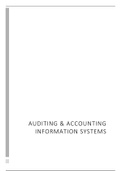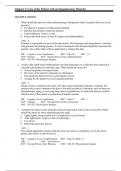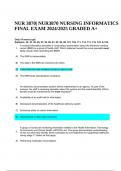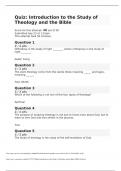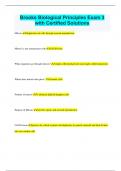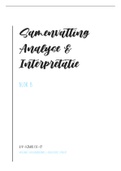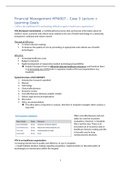Class notes
Auditing and Accounting Information Systems - Summary of all lectures
- Course
- Institution
Complete summary of all lectures of the course Auditing and Accounting Information Systems at Tilburg University, written in 2020. It includes all the content for the exam!
[Show more]
